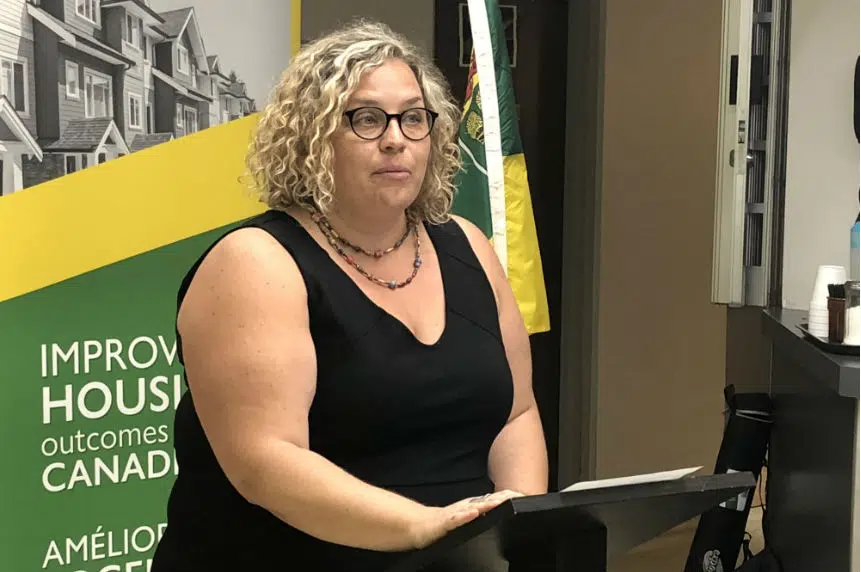Saskatchewan has some of the highest rates of domestic violence in the country, and now funding is being introduced to provide more housing options for victims.
On Tuesday, the provincial and federal governments announced over $4.2 million will be going to 14 emergency shelters in nine communities, including Regina and Saskatoon. The funding is coming through the Shelter Enhancement Program.
The money will help keep up general repairs and maintenance at most shelters with some new housing being added as well. The improvements will make sure all shelters have a similar standard of repair, safety, accessibility and comfort.
The YWCA in Regina will also use the money to fund its educational programs which look at masculinity, domestic violence and healthy relationships.
“I think that it’s vital to changing the course and the action of our rates of domestic violence in the province, I think without that advocacy work, without the education work we’re not going to change that dial,” said Melissa Coomber-Bendtsen, CEO of YWCA Regina.
She explained this round of funding and previous ones from governments helps show the domestic violence issue is being looked at and recognized.
“The issue is real, it’s embarrassing that we are double the national average and that Saskatchewan continues to be the province with the most amount of intimate partner violence among all the provinces,” shes said. “I think that investing in that is showing that there’s a recognition and acknowledgment that this is a real issue.”
Between the Isabel Johnson Shelter and My Aunt’s Place, YWCA Regina had to turn away about 4,000 women and children last year. Coomber-Bendtsen said that number has been rising every year.
“It’s increasing at the same time as we see increases in the child-welfare system, we see increases in the instance of domestic abuse and homicide in our province, all those numbers are going up at the same time.”
While the funding will not provide more beds for those centres, she believes more education and advocacy will help reduce that number.
“The more work we can do to work and educate folks ahead of time means that fewer women are entering into crisis,” Coomber-Bendtsen said.
According to the government of Canada, women make up 80 per cent of victims who report domestic violence to police.







